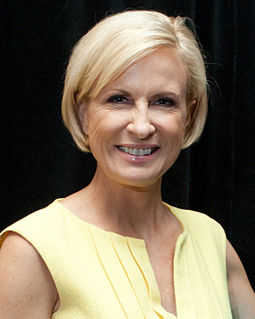A Quote by Gillian Tans
We know that companies which have more women in leadership positions have a better performance.
Quote Topics
Related Quotes
Countries with more gender equality have better economic growth. Companies with more women leaders perform better. Peace agreements that include women are more durable. Parliaments with more women enact more legislation on key social issues such as health, education, anti-discrimination and child support. The evidence is clear: equality for women means progress for all.
We have an almost desperate need for more women to run for office and for more women to really gut it out after they have kids and stay in their jobs and get to high positions in companies. We need women at the top more than ever. We need women's voices there because they are very different than men's voices and they bring a very valuable and necessary point of view to the table.
What business needs now is exactly what women are able to provide, and at the very time when women are surging into the work force. But perhaps even more important than work force numbers is the fact that women - who began this sweeping entry in the mid-seventies - are just now beginning to assume positions of leadership, which give them the scope to create and reinforce the trends toward change. The confluence is fortunate, an alignment that gives women unique opportunities to assist in the continuing transformation of the workplace.
I actually felt like college was a much better and more comfortable environment for me than high school was. I think that can largely be attributed to the fact that I go to Barnard, which is a women's college that promotes women's leadership, a strong community and independence which are all things I obviously value. Before I got to school I think I expected most women there to identify as feminist, which I found wasn't necessarily the case, but I loved that I was able to have really intelligent and stimulating conversations with women about feminism no matter how they identified.
When we look at women, we have to look at the significance of their work in a different way from the way we look at it with men. Women have more often worked within the home, working equally as hard, I would argue, but not always out there where they're counted, not always up there in the labor unions, certainly not in leadership positions.



































